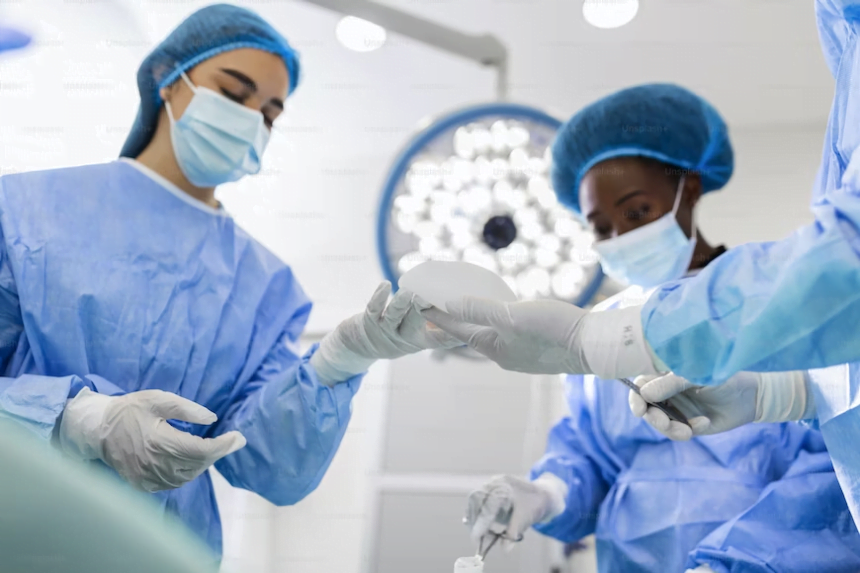Facial trauma can have a devastating impact on a person’s physical appearance as well as emotional well-being. Victims of accidents often go through surgeries to restore their identity. Facial trauma reconstruction surgery solves both problems using innovative surgical techniques to help individuals regain their confidence and overall quality of life. In this article, we’ll discuss what facial trauma is and how facial reconstruction surgery can help improve the quality of life of facial trauma victims.
Understanding Facial Trauma and Its Types
Facial injuries, also called maxillofacial injuries, include bone or soft tissue damage, which may be caused by motor vehicle accidents, assaults, animal bites, chemical exposure, or fire. The human face contains many bones, nerves, blood vessels, and sensory organs. Any damage to them could result in permanent disfigurement or loss of function. Plastic and reconstructive surgeons can lessen the risk of this happening by restoring both form and function of the face to the best of their abilities.
If you or anyone you know has suffered from facial trauma and is looking for a skilled and experienced surgeon to consult, you can consult Dr. Jay Calvert in Beverly Hills, California, for professional insight on your specific case.
Generally, facial trauma includes fractures and soft tissue injuries. Bone fractures are the most common type of facial trauma. Fractures may involve the jaw, cheekbones, and eye sockets, affecting the ability to see, breathe, speak, or swallow. It also includes dental injuries like tooth fractures and tooth avulsion. Trauma to soft tissues of the face consists of lacerations, abrasions, burns, or nerve damage to skin, muscles, and blood vessels.
The nose is particularly vulnerable to injuries due to its position on the face. Assault, cartilage damage, or nasal septum deviation are included in nasal injuries and may affect the appearance and functionality of the nose. Additionally, thermal, chemical, and electrical burns can cause significant damage to the face, resulting in tissue loss and severe scarring.
Treatment Options for Facial Trauma
Plastic and reconstructive surgeons, especially oral and maxillofacial surgeons, are specifically trained to fix any disfigurement caused to the face. Your doctor may examine your face for any signs of swelling, pain, or issues in mobility. They may also recommend imaging scans like CT scans. They are the most effective way to assess the level of damage since they allow bones, soft tissue, and blood vessels to be imaged.
A few common procedures used in facial reconstruction surgery include open reduction and internal fixation (ORIF) to heal broken bones by realigning them and securing them in place using plates, screws, or other fixation devices. Nasal reconstruction involves reshaping the nasal bones, cartilage grafting, or septoplasty to improve the appearance and fix any breathing problems the patient may be experiencing. Scar revision is another standard procedure to improve a scar’s cosmetic appearance using methods such as surgical excision, dermabrasion, or laser treatments.
Psychological Impact and Emotional Recovery
Facial disfigurement, whether due to an accident or by birth, generally invites a negative social response. Studies have shown that patients suffering from facial trauma have significantly increased levels of disorders, such as PTSD or anxiety, particularly in assault victims. This, added to the negative response from society, leads to individuals with low self-esteem and negative body image, who generally shy away from social interaction.
Despite this, most facial trauma patients cannot access psychological support or counseling services. Facial trauma reconstruction surgery aims to restore the natural appearance of the face, helping individuals regain their identity and confidence while alleviating psychological distress or depression caused by disfigurement. Reconstructive surgery may involve a long healing period and changes to the physical features. These changes may require time to adjust, and patients can benefit from counseling during this period.
Endnote
The negative effects of facial trauma can have a lasting impact on people, especially when it comes to body image and dealing with others. However, facial trauma reconstruction surgery holds immense potential to improve the appearance and overall quality of life of a person with facial trauma. The combined effort of skilled plastic surgeons and mental health professionals contributes to the general and emotional well-being of patients, ensuring they do not suffer from any negative experiences or thoughts post-injury.









